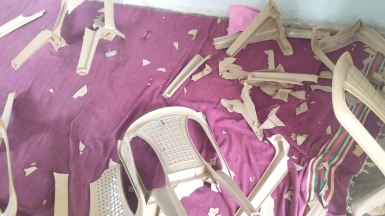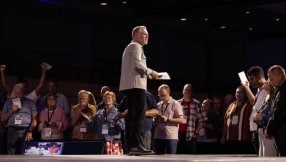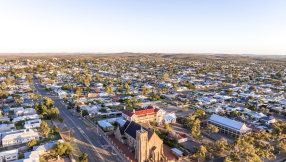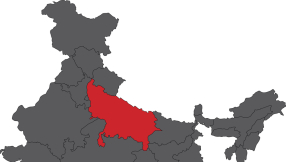
A Christian congregation in central India has been left traumatised and fearing for their lives after a brutal assault by Hindu extremists on 8 June, during which Bibles were burnt, worshippers beaten, and a pastor left unconscious.
The attack took place during a Sunday service at the independent Penial Prayer Fellowship in Borsi village, Dhamtari District, Chhattisgarh.
According to church leader Pastor Wakish Sahu, the mob of around 15 assailants stormed the church wielding wooden rods and shouting Hindu nationalist slogans, including “Jai Shri Ram” (Hail Lord Rama).
“They forcibly entered the church, disrupted the worship service and were carrying wooden rods and shouting slogans like ‘Jai Shri Ram’ [Hail lord Rama],” Pastor Sahu told Morning Star News.
The extremists reportedly smashed chairs and musical instruments, tore through the church building, and set fire to all Bibles and Christian literature they could find. Worshippers were then assaulted indiscriminately, including women and the elderly.
Pastor Sahu’s 57-year-old father, Mannohan Sahu, who co-leads the church, suffered the most severe injuries.
“My father was being beaten up, and during this time blows landed near his ear, and he lost his consciousness,” his son said.
“The assaulters, probably scared that he was dead or going to die from the beating, called for a glass of water and forced it in his mouth.”
At least seven worshippers required hospital treatment, including Pastor Sahu’s mother, who was attacked as she tried to shield her husband from the blows.
“Two women and five men sustained severe injuries and had to be taken to the hospital for treatment,” he said.
This is the second time the church has been attacked in just over a year, and since the latest violence, nearly all members have stopped attending services out of fear.
“Since the attack, the believers have stopped coming for worship as they are too scared, and understandably so; but our family members, around 10 of us, still worship at the same time,” Pastor Sahu said. “We have decided that we will not give in to fear.”
Despite the severity of the attack, police have yet to file a formal complaint. Pastor Sahu said he lodged a detailed report with the local police station in Maganlodh, but officers told him they would “investigate first”. More than three weeks later, no charges have been filed.
Police had visited the church earlier that same morning and warned against the attendance of outsiders - something local authorities have discouraged.
“Police have been patrolling every Sunday since last year,” Pastor Sahu said. “They usually come inside to check if any persons from nearby villages are in attendance, because they maintain that only people from our village should be present in our services. They have warned time and again that no one from other villages should be found in our midst.”
They typically photograph attendees before leaving. When the violence broke out, the same officers returned - but according to Sahu, they intervened only verbally.
“It was very surprising that the police just told them, ‘It is enough,’ and they all just walked away,” he said. “It appears that it was all in the knowledge of the police even before they attacked us.”
When Christian leaders attempted to file a complaint in person, the same mob was reportedly waiting for them outside the police station. “When the police were driving us back, the Hindu mob was following the police vehicle,” Pastor Sahu said. “They came after us for a mile and then took a detour.”
He later learned that the same group had also vandalised and set fire to a nearby Christian home.
The same day as the Borsi assault, at least three other churches in the Dhamtari District were disrupted or attacked.
At Elohim Church, Hindu extremists from the Bajrang Dal disrupted the service by loudly singing religious hymns.
“The Hindu extremists entered the church while the service was going on and disrupted it by loudly singing Hindu religious hymns,” said Pastor Alok Majumdar.
Police intervened, but once again, no arrests or formal complaints followed.
In another incident, a 21-year-old man attending church for the first time was assaulted outside the church of Pastor Rekha Mahilanh. When the mob demanded to see the pastor, Mahilanh and a group of female congregants stepped forward. “The Hindu extremists discreetly used some kind of a spray on some of the women,” Pastor Mahilanh said.
She chose not to file a police complaint.
Pastor Raju Verghese, Pastor Majumdar and the Rev Diamond Phillius, president of the Dhamtari Christian Forum, submitted a memorandum to the collector’s office on 1 July highlighting the rise in attacks against area churches and appealing for action.
The collector, Avinash Mishra, was reportedly in a meeting but agreed to consider their concerns.
“Since the attack last year, our congregation shrank from nearly 50 to just 15,” Pastor Sahu said. “Now, no one from outside our family dares attend. People are terrified - and rightly so.”
The fear extends even to believers in larger cities. “Many of them have told us that they will attend worship in other churches in nearby areas or in the city but are afraid of attending worship services at our church because of fear of violence and the police,” he said. “However, they do not understand that even city churches have not been spared.”
Christian advocacy groups say these attacks reflect a broader trend of religious intolerance in India. The country now ranks 11th on the World Watch List of nations where Christians face the most persecution - up from 31st in 2013. The rise is widely attributed to the Hindu nationalist Bharatiya Janata Party (BJP), which has been in power under Prime Minister Narendra Modi since 2014.
Religious freedom campaigners argue that BJP rhetoric has emboldened extremist groups, who increasingly act with impunity.













